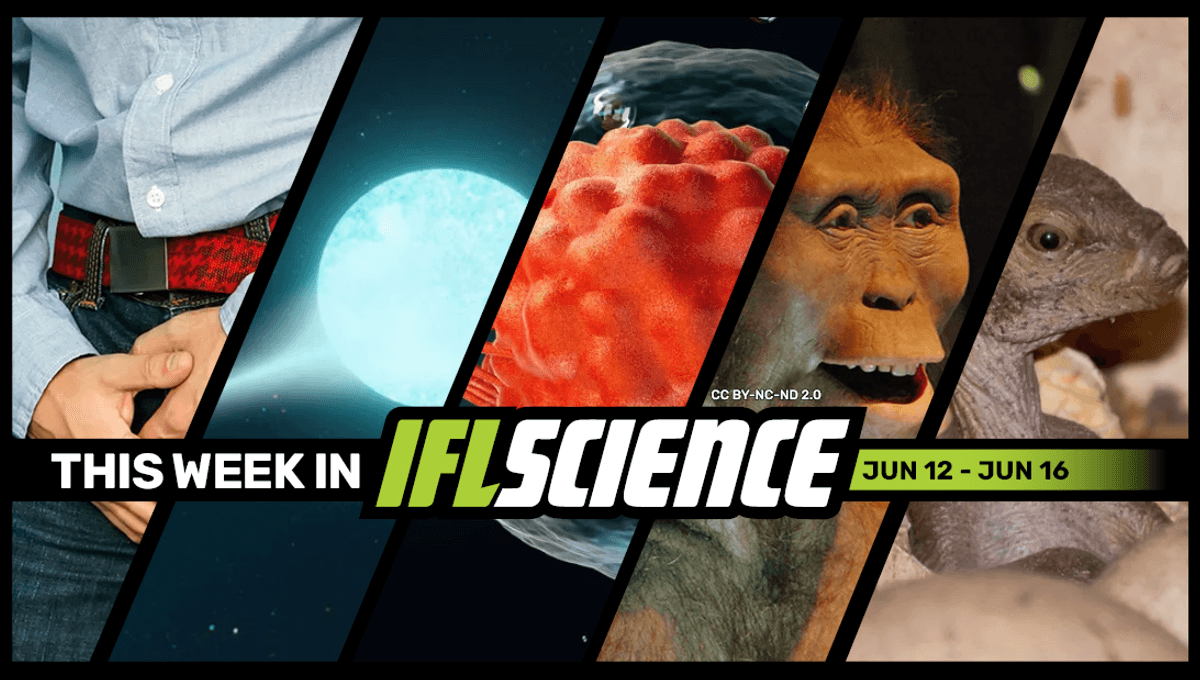
This week the Milky Way’s fastest runaway star was discovered traveling at 2,285 kilometers per second, a new 3D model shows “Lucy”, an early human ancestor, may have walked upright, and we investigate the Sentinelese, the world’s most isolated uncontacted tribe.
Subscribe to the IFLScience newsletter for all the biggest science news delivered straight to your inbox every Wednesday and Saturday.
Scientists Have Finally Studied The “Blue Balls” Phenomenon, Here’s What They Found
Scientists have taken a closer look at “blue balls”, the supposed feelings of pain and discomfort felt in the genitals after sexual situations that don’t lead to an orgasm. Despite the lack of study, there are a number of theories flying around about the phenomenon and its cause. Read the full story here
Fastest Runaway Star In Milky Way Discovered Moving At 2,285 Kilometers Per Second
Astronomers have discovered six new “runaway” stars in the Milky Way. These are stars that move extremely fast and in an unusual direction, usually as the result of a supernova event. Two of the stars have broken records for the fastest objects of their kind ever observed in the galaxy. Read the full story here
Synthetic Human Embryos Have Been Made In A Lab For First Time, Scientists Say
Synthetic human embryos – derived from stem cells without the need for eggs or sperm – have been created for the first time, scientists say. The structures represent the very earliest stages of human development, which could allow for vital studies into disorders like recurrent miscarriage and genetic diseases. But questions have been posed about the legal and ethical implications, as the pace of scientific discovery outstrips the legislation. Read the full story here
“Lucy” Walked Upright 3.2 Million Years Ago, New 3D Model Shows
Scientists have recently looked at the bones of “Lucy,” a world-famous set of early human ancestor remains, and found further evidence that she could walk upright just as effectively as modern-day Homo sapiens. Considering she wandered about Earth 3.2 million years ago, that’s a remarkable discovery that helps to illuminate one of the most important steps in human evolution: bipedalism. Read the full story here
Can We Bring Back Dinosaurs, And Is Anyone Trying To?
Is it possible to clone a dinosaur? Or could we bring back dinosaurs some other way? We ask because it’s the 30th anniversary of Jurassic Park, and we’ve got dinosaurs on the brain. We decided to dive into the world of animal cloning and dinosaur husbandry by speaking to Dr Susie Maidment of London’s Natural History Museum and Ben Lamm, founder and CEO at Colossal Biosciences. Read the full story here
Feature of the week:
The Sentinelese: Who Are The Most Isolated Uncontacted Tribe On Earth?
No one knows what language they speak, how they live, or what they believe. We don’t even know what they call themselves. Against all odds, however, the Sentinelese still populate North Sentinel Island, and they’re thriving. Read the full story here
Source Link: TWIS: Scientists Finally Investigate “Blue Balls”, Synthetic Human Embryos Produced For The First Time, And Much More This Week